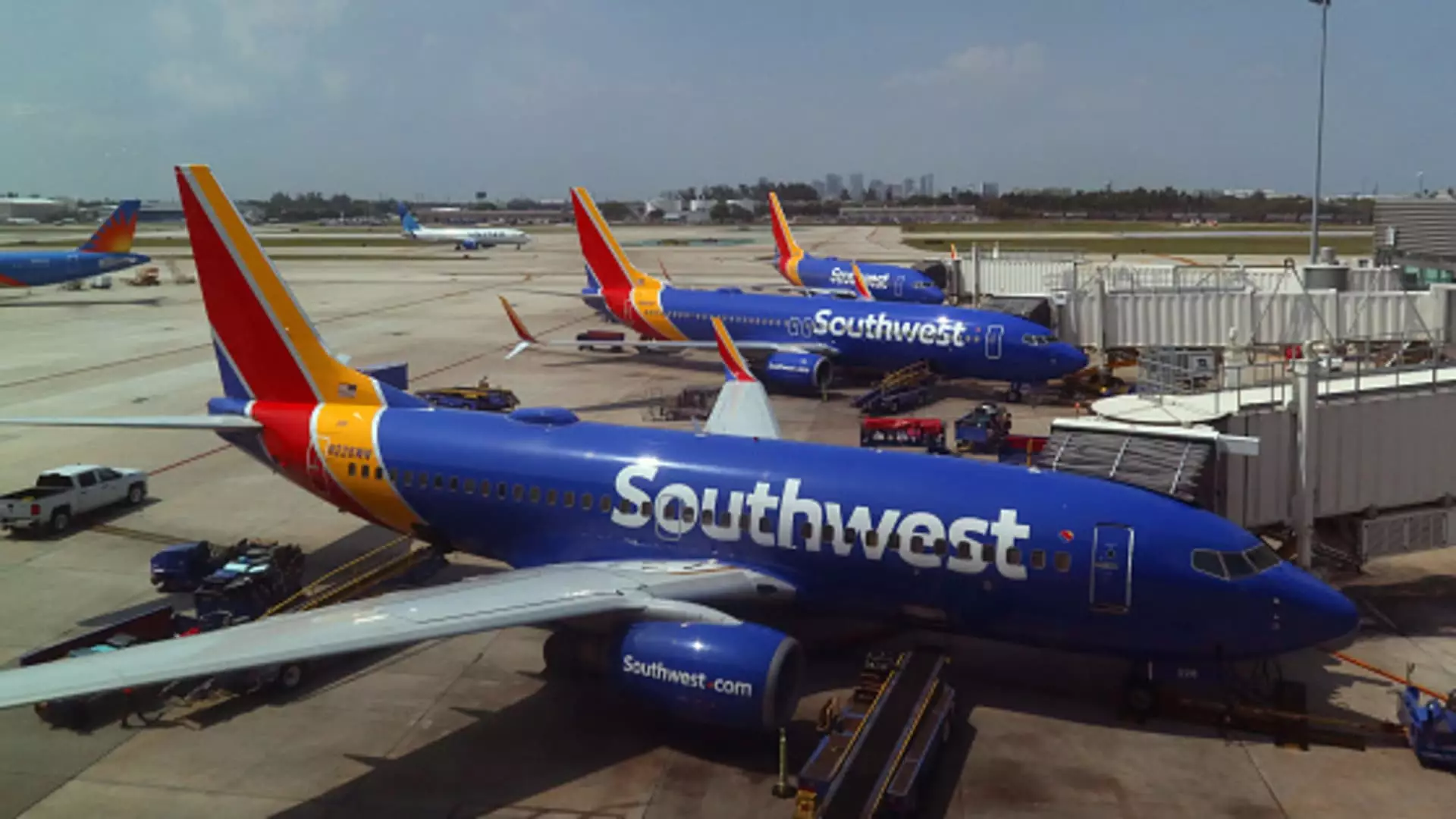Southwest Airlines has recently forecasted a potential drop in unit revenue for the third quarter of this year. This prediction comes as a result of an oversupplied U.S. market, which has forced airlines to discount tickets during what is usually the most lucrative period of the year. The airline stated that unit revenue for the current quarter could decrease by as much as 2% compared to last year. Additionally, nonfuel costs are anticipated to rise by as much as 13%, with higher expenses affecting the airline’s performance through the end of 2024. As a direct consequence of this outlook, shares of Southwest fell more than 6% in premarket trading on Thursday.
In the second quarter of this year, Southwest Airlines reported its financial results, which were compared to Wall Street expectations. The airline’s revenue for the quarter reached $7.35 billion, marking a 4.5% increase from the previous year and setting a new record. However, Southwest’s profit dropped by more than 46% to $367 million, or 58 cents a share. Revenue per available seat mile, indicating airline pricing power, experienced a decline of 3.8%, aligning closely with the carrier’s revised forecast from the previous month. Adjusted per-share earnings were reported at 58 cents a share, surpassing analysts’ expectations. The CEO, Bob Jordan, acknowledged in an earnings release that both external and internal factors impacted the airline’s second-quarter performance, falling short of their potential.
Southwest Airlines also mentioned on Thursday that it is currently in negotiations with Boeing for compensation. Boeing is the airline’s sole supplier of airplanes but has been experiencing difficulties in delivering aircraft on time due to safety and manufacturing crises. Consequently, Southwest now expects to receive only 20 deliveries from Boeing this year, significantly lower than the initial forecast. The pressure from investors for increased revenue has led to an overhaul within the airline, with Elliott Investment Management disclosing a nearly $2 billion stake and calling for a change in leadership. As a response to market demands, Southwest announced significant changes to its business model, including the elimination of its open seating plan and the introduction of seats with extra legroom on Boeing aircraft, as well as the addition of overnight flights starting next year.
CEO Bob Jordan emphasized the urgency and intentionality of the steps being taken to address near-term revenue challenges and implement long-term transformational initiatives geared towards substantial growth in both top and bottom-line figures. These actions are pivotal as Southwest adapts to a rapidly changing market environment and aims to differentiate itself from competitors. Delta Air Lines and United Airlines executives have also indicated their expectations for U.S. capacity to stabilize in August, potentially resulting in higher fares industry-wide. Southwest remains focused on navigating the complexities of the current landscape while positioning itself for sustainable success in the future.

